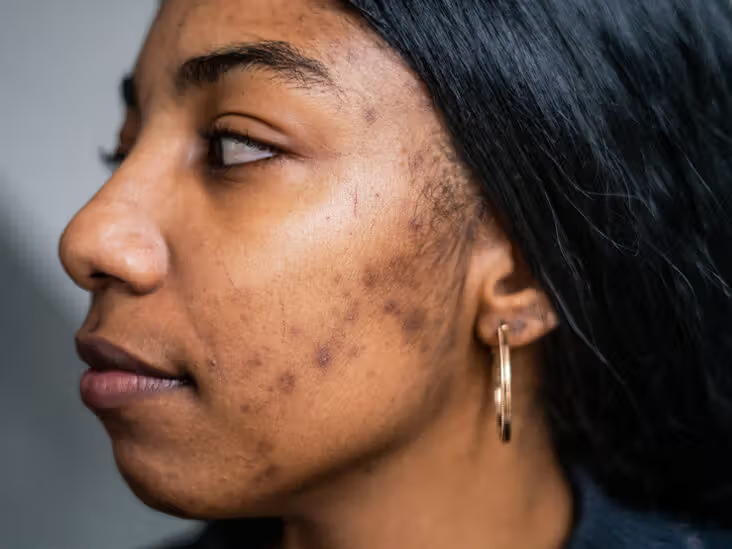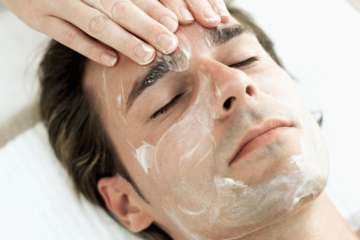Dark scars can affect anyone, and they often leave us feeling self-conscious about our skin. Whether from acne, surgery, or injuries, these scars can be stubborn and hard to fade. But don’t lose hope! With the right knowledge and treatments, you can achieve clearer, more radiant skin. This blog post will guide you through the science behind dark scars, dermatologist-approved treatments, home remedies, and real-life success stories. Let’s get started!
Understanding the Science Behind Dark Scars
How Do Scars Form?
Scars are a natural part of the healing process. When your skin is injured, the body produces collagen fibers to repair the damage. This rapid production of collagen can lead to the formation of a scar. In some cases, the body produces too much melanin, the pigment responsible for skin color, resulting in dark scars.
Why Are Some Scars Darker?
Dark scars, also known as hyperpigmented scars, occur when excess melanin is produced during the healing process. This can be triggered by various factors such as inflammation, sun exposure, and genetics. Post-inflammatory hyperpigmentation (PIH) is a common type of dark scar that often follows acne, eczema, or other skin irritations.
The Role of Inflammation
Inflammation plays a crucial role in the formation of dark scars. When the skin is inflamed, it can stimulate the production of melanin. This is why it’s essential to manage inflammation and protect your skin from further irritation.
Dermatologist-Approved Skincare Treatments
1. Topical Retinoids
Topical retinoids, such as tretinoin or adapalene, are derivatives of vitamin A that promote cell turnover and reduce the appearance of dark scars. They work by increasing collagen production and speeding up the skin’s renewal process. Apply a pea-sized amount to the affected area at night, and always use sunscreen during the day to protect your skin.
2. Chemical Peels
Chemical peels involve applying a solution to the skin that causes it to exfoliate and peel off. This process reveals new, smoother skin underneath. Glycolic acid, salicylic acid, and lactic acid are common ingredients used in chemical peels to treat dark scars. Consult with a dermatologist to determine the best type and strength for your skin.
3. Microneedling
Microneedling is a minimally invasive procedure that involves using fine needles to create tiny punctures in the skin. This stimulates collagen production and improves the texture and tone of the skin. Combining microneedling with topical treatments, such as hyaluronic acid or vitamin C, can enhance the results.
4. Laser Therapy
Laser therapy targets the pigment in dark scars and breaks it down without damaging the surrounding skin. Fractional laser treatments, like Fraxel, are effective for reducing the appearance of surgical scars and post-inflammatory hyperpigmentation. Multiple sessions may be required for optimal results.
5. Vitamin C Serums
Vitamin C is a powerful antioxidant that brightens the skin and reduces the appearance of dark scars. It inhibits melanin production and promotes collagen synthesis. Incorporate a vitamin C serum into your daily skincare routine to fade dark spots and improve overall skin radiance.
Home Remedies vs. Professional Treatments
Effectiveness
Home remedies, such as aloe vera, honey, and lemon juice, can provide some benefits for mild dark scars. However, they are generally less effective than professional treatments. Professional treatments, guided by a dermatologist, offer more significant and long-lasting results.
Safety
While home remedies are usually safe, they can sometimes cause irritation or allergic reactions. Professional treatments are performed by trained specialists who can tailor the procedures to your skin type and needs, minimizing the risk of adverse effects.
Cost
Home remedies are cost-effective and readily available, making them a popular choice for minor scars. Professional treatments can be more expensive, but they often deliver faster and more noticeable results. Consider your budget and desired outcomes when choosing between these options.
Testimonials and Before-After Photos
Case Study 1: Acne Scar Success with Microneedling and Retinol
Jane, a 28-year-old woman, struggled with acne scars for years. She decided to try a combination of professional microneedling and an at-home retinol regimen. Over six months, she noticed a significant improvement in the texture and appearance of her skin. Her before-and-after photos showcase the remarkable transformation.
Case Study 2: Laser Therapy for Surgical Scars
John, a 45-year-old man, had noticeable surgical scars on his face. He underwent fractional laser therapy under the guidance of a dermatologist. After several sessions, his scars became lighter and less prominent. The detailed insights into the procedure and recovery process highlight the effectiveness of laser therapy.
Case Study 3: Vitamin C for Post-Inflammatory Hyperpigmentation
Emily, a beauty blogger, experienced post-inflammatory hyperpigmentation after a bout of severe acne. She introduced a high-quality vitamin C serum into her skincare routine. Within a few months, her dark spots faded, and her skin appeared brighter and more even-toned. Her tips on integrating vitamin C into a daily regimen are invaluable.
Practical Tips for Preventing and Managing Dark Scars
Maintain a Consistent Skincare Routine
Consistency is key to preventing and managing dark scars. Cleanse your skin twice daily, exfoliate regularly, and use products containing ingredients like niacinamide and hyaluronic acid to keep your skin healthy and hydrated.
Protect Your Skin from the Sun
Sun exposure can worsen dark scars and hinder the healing process. Wear broad-spectrum sunscreen with an SPF of 30 or higher daily, even on cloudy days. Reapply every two hours, and consider wearing protective clothing and hats.
Avoid Picking and Popping
Picking at pimples or scabs can lead to inflammation and dark scars. Resist the urge to pop or pick at your skin. Instead, use spot treatments with benzoyl peroxide or salicylic acid to speed up healing.
Stay Hydrated and Eat a Balanced Diet
Hydration and nutrition play vital roles in skin health. Drink plenty of water and consume a diet rich in fruits, vegetables, and lean proteins. Foods high in antioxidants, like berries and leafy greens, can help reduce inflammation and promote healing.
Conclusion
Dark scars can be frustrating, but with the right approach, you can significantly improve their appearance. From dermatologist-approved treatments to practical prevention tips, there are numerous ways to achieve clearer, more radiant skin.
Remember to consult with a dermatologist to determine the best treatment plan for your specific needs. Their expertise can guide you towards the most effective and safe options for your skin.
Ready to take the next step in your skincare journey? Download our exclusive skincare routine planner tailored for dark scar treatments, and discover a personalized roadmap to clear, radiant skin. Click here to get started!
For those looking to understand their skin better, explore our comprehensive guide to the science of scars and how they form. Don’t forget to subscribe to our newsletter for early access to a video series featuring skincare experts discussing dark scars, their treatments, and live Q&A sessions.
Take charge of your skin health today and say goodbye to dark scars!





